Has Ukraine's counteroffensive become a 'war of attrition?'
An expected thrust has turned into a slog

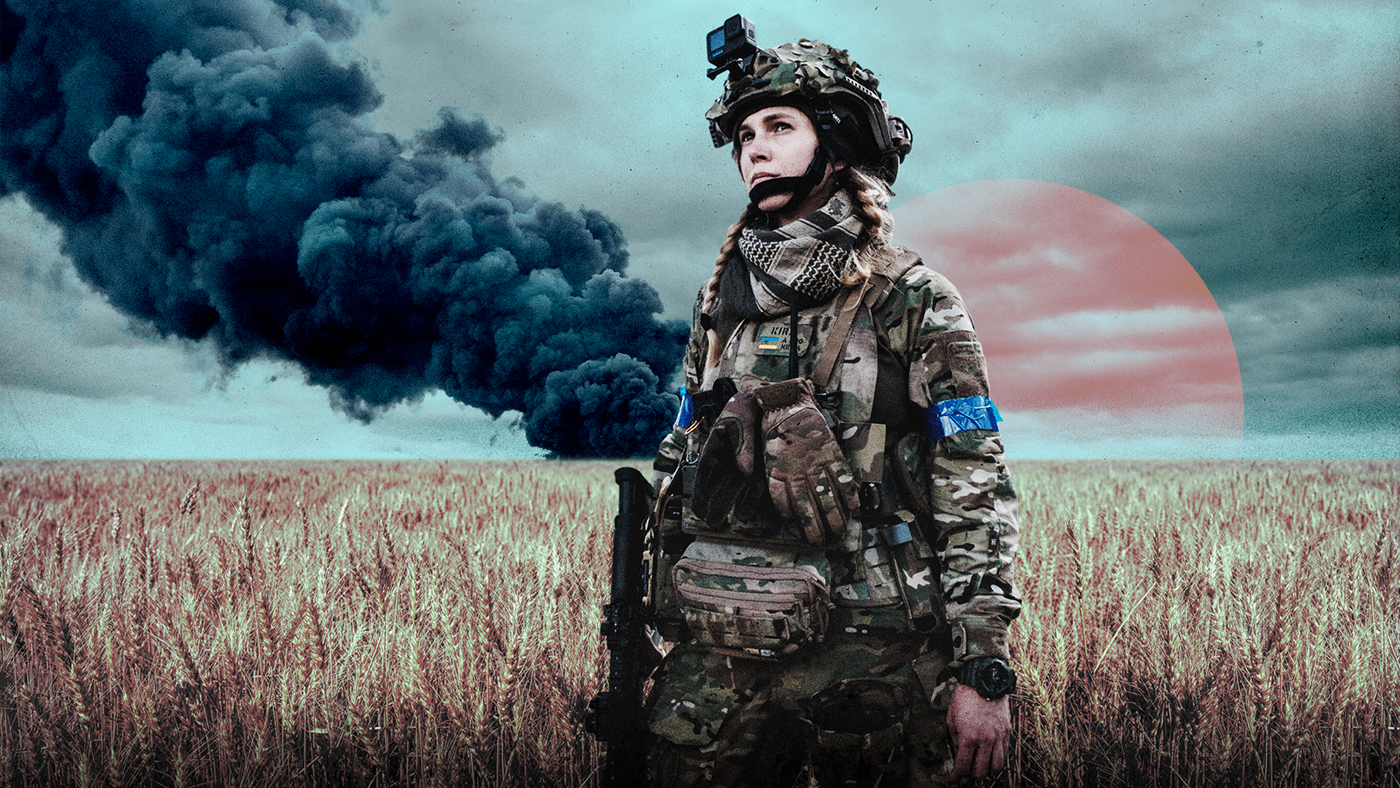
A free daily email with the biggest news stories of the day – and the best features from TheWeek.com
You are now subscribed
Your newsletter sign-up was successful
Ukraine's long-touted counteroffensive against the Russian invasion doesn't seem to be getting anywhere fast. The Washington Post reported this week that there's been "no sign yet of a major breakthrough" despite "intense fighting" across southeastern Ukraine. Russian defenses — "a phalanx of trenches, tripwires and anti-personnel and anti-armor mines" — have proven incredibly stout. (One other factor: Weeds and shrubs.)
If Russian defenses are proving tough, though, NATO-trained Ukrainian forces have also demonstrated some shortcomings. The New York Times reported that despite some advances, those troops "have yet to make the kinds of sweeping gains that characterized their successes in the strategically important cities of Kherson and Kharkiv last fall." That failure "raises questions about the quality of the training" provided by the West. One eternal military truth, however, is that "offense is harder than defense" — as Russia proved last year when its invasion quickly petered out.
Two months after the Ukrainian counteroffensive began, it's become clear that it was probably "unfair" to expect "dash and drama" from the offensive, said The Economist. Ukraine's forces have been armed and trained by the West, but they don't have "overwhelming firepower and air supremacy" to mount a blitzkrieg-style lightning thrust against Russian defenses. This means that the war may be reduced to a grind-it-out affair. Is it time for Ukraine and its backers to accept "the logic of attrition?"
The Week
Escape your echo chamber. Get the facts behind the news, plus analysis from multiple perspectives.

Sign up for The Week's Free Newsletters
From our morning news briefing to a weekly Good News Newsletter, get the best of The Week delivered directly to your inbox.
From our morning news briefing to a weekly Good News Newsletter, get the best of The Week delivered directly to your inbox.
What are the commentators saying?
The slow advance of the counteroffensive is "the price of allies' hesitation" in providing Ukraine with advanced weaponry, Brady Africk of the American Enterprise Institute wrote for the Washington Post. While Russians constructed their defenses at a "frantic pace," America and other Western countries didn't let that influence "the speed of their decision making." Instead, there is a "pattern of delay" when Ukraine asks for missiles, tanks and cluster munitions. That delay "makes a protracted, grinding conflict more likely." It's time for Western leaders to move more quickly. "Ukraine needs our help, not our excuses."
"The fact that the Ukrainians are on the offensive at all is something of a miracle," Tom Nichols wrote for The Atlantic. But wars don't have the same "narrative arc as action movies." It's always not the case that the "good guys" can deliver a swift, crushing blow to the bad guys. Ukraine is taking the war to its Russian enemy — both on the battlefield and with drone attacks on Moscow. The U.S. should speed up its aid to Kyiv, yes. Even then, the task won't be easy. This means "the summer of drones and trenches will drag on — as it must."
"The first casualty of the Ukrainian counteroffensive was wishful thinking," Julian Borger wrote for The Guardian. Russian troops haven't fled the advance. Instead, Ukrainian troops — slowed by Russian minefields — have had to proceed "at walking speed." That means there will be no "dramatic breach of Russian lines." But the offensive may yet pay off. "It's not going to be easy," one official told Borger, "so we shouldn't shy away from that."
What's next?
Even as Ukraine and Russia duke it out on the battlefield, there are some efforts underway to bring the war to a peaceful conclusion. Politico reported that Saudi Arabia is hosting "dozens of national security advisers and senior-ranking officials" this weekend as part of an effort "to broker a peace plan" in Ukraine. (Russia is not invited, but China is.) "What is important is that we have an outcome that is acceptable for the Ukrainian people," said one European Union official.
A free daily email with the biggest news stories of the day – and the best features from TheWeek.com
And if Ukraine is having a tough time executing its counteroffensive, it is important to remember that Russia has found this war much more difficult than it originally anticipated. "Putin is not close to achieving any of his war aims while the price of his gambit grows ever steeper," Lawrence Freedman wrote at Foreign Affairs. After the recent rebellion by Wagner mercenaries, it is Vladimir Putin who needs to show his country there is a path to victory. In Ukraine, by contrast, "that this is a war that had to be fought." So for now, "this has become a war of endurance."
Joel Mathis is a writer with 30 years of newspaper and online journalism experience. His work also regularly appears in National Geographic and The Kansas City Star. His awards include best online commentary at the Online News Association and (twice) at the City and Regional Magazine Association.
-
 How the FCC’s ‘equal time’ rule works
How the FCC’s ‘equal time’ rule worksIn the Spotlight The law is at the heart of the Colbert-CBS conflict
-
 What is the endgame in the DHS shutdown?
What is the endgame in the DHS shutdown?Today’s Big Question Democrats want to rein in ICE’s immigration crackdown
-
 ‘Poor time management isn’t just an inconvenience’
‘Poor time management isn’t just an inconvenience’Instant Opinion Opinion, comment and editorials of the day
-
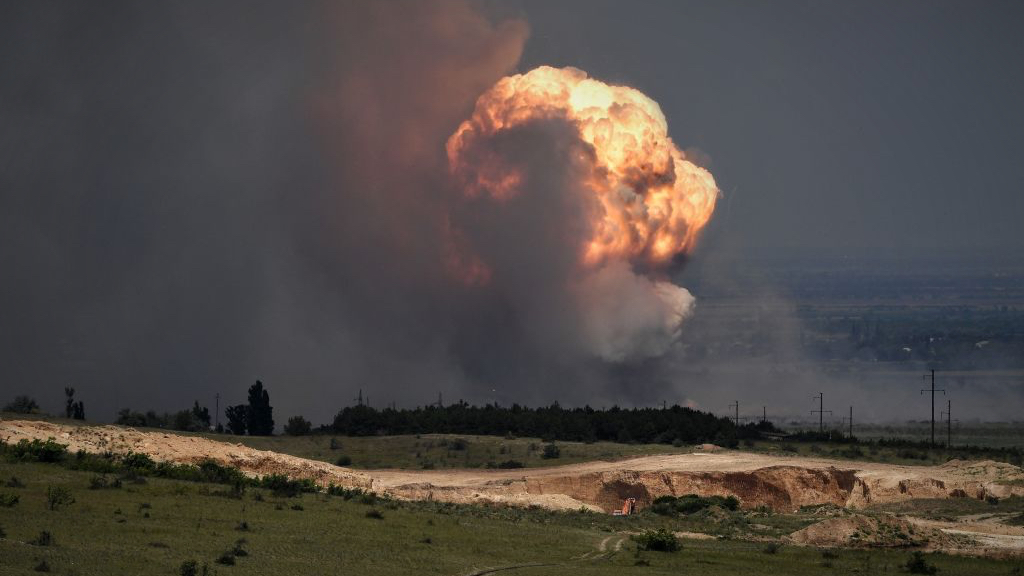 Russia's Crimea fleet shipyard on fire after Ukrainian missile strike
Russia's Crimea fleet shipyard on fire after Ukrainian missile strikePhotos and videos showed huge explosions and raging fires at the Sevastopol Shipyard
-
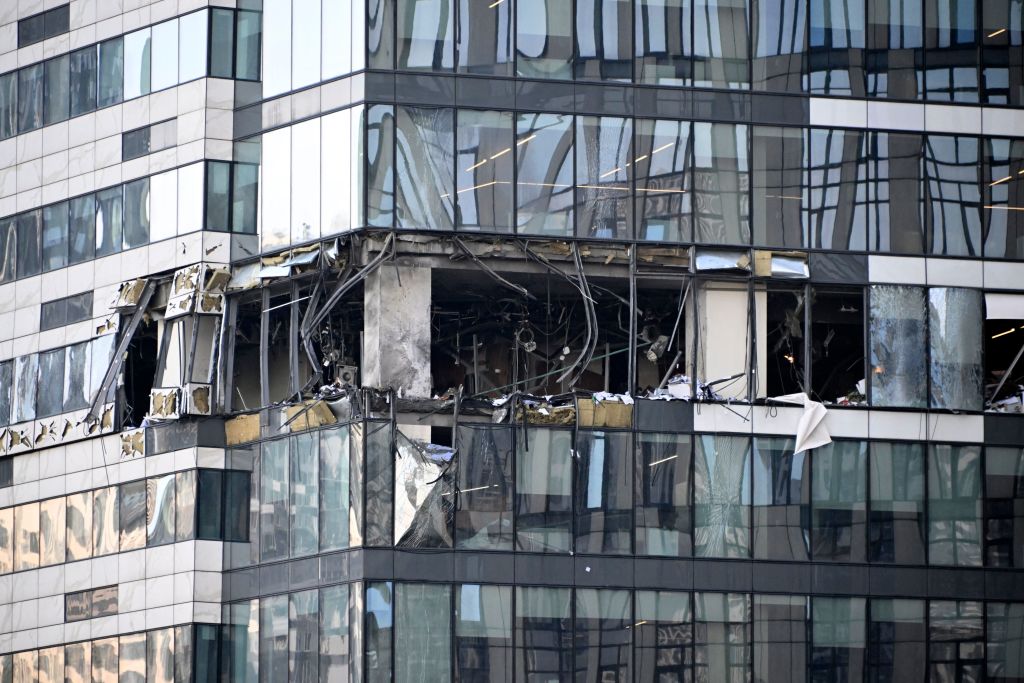 Saudi Arabia to host Russia-less Ukraine peace talks, Kyiv confirms, as Moscow hit by more drones
Saudi Arabia to host Russia-less Ukraine peace talks, Kyiv confirms, as Moscow hit by more dronesSpeed Read
-
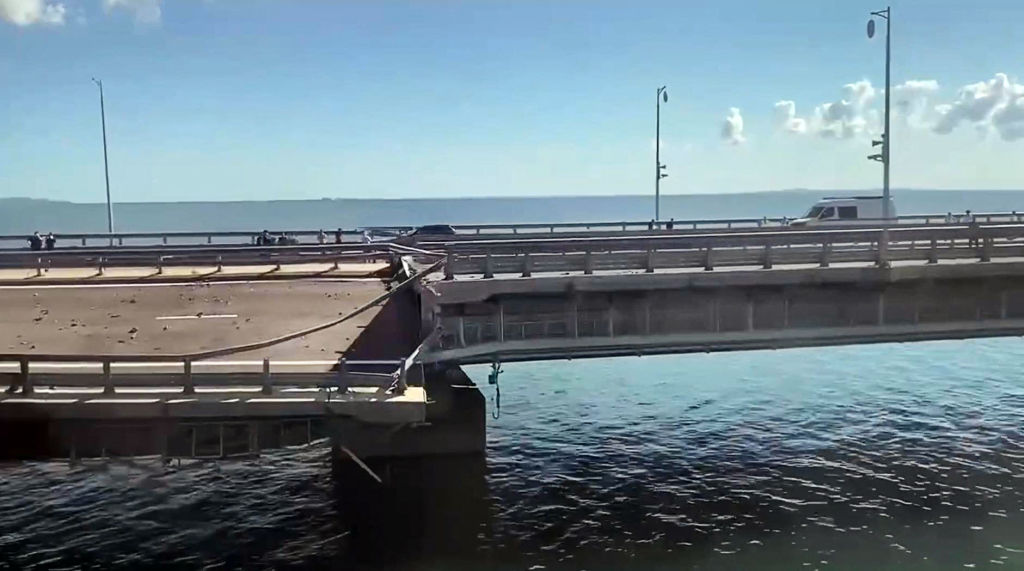 Attack attributed to Ukraine naval drones damages key Russian bridge to occupied Crimea
Attack attributed to Ukraine naval drones damages key Russian bridge to occupied CrimeaSpeed Read
-
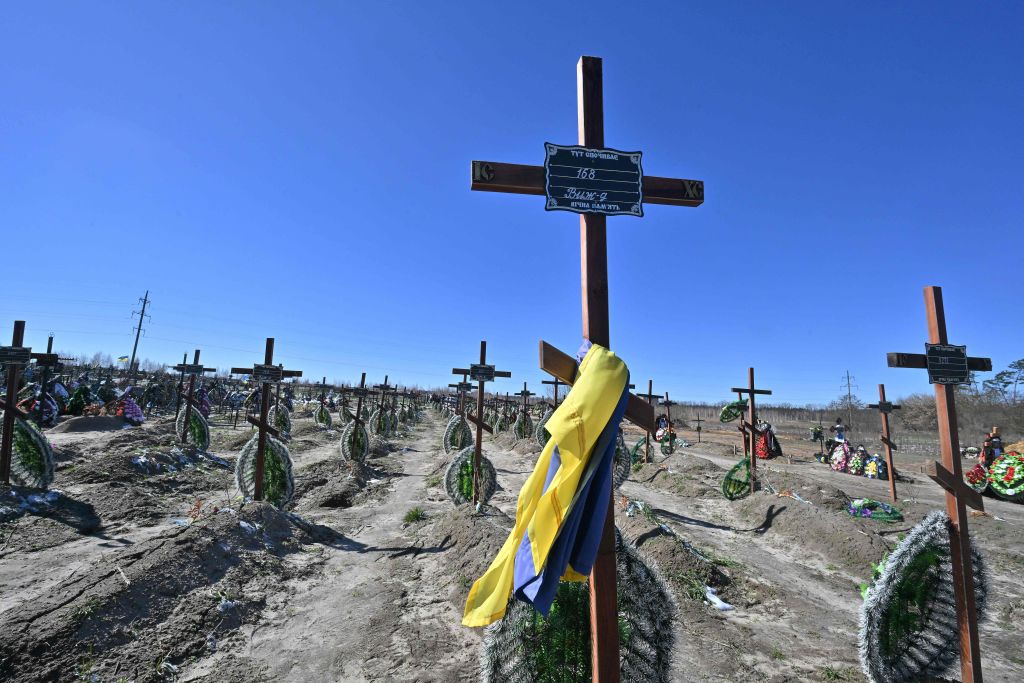 Inside Russia's war crimes
Inside Russia's war crimesSpeed Read Occupying forces in Ukraine are accused of horrific atrocities. Can they be held accountable?
-
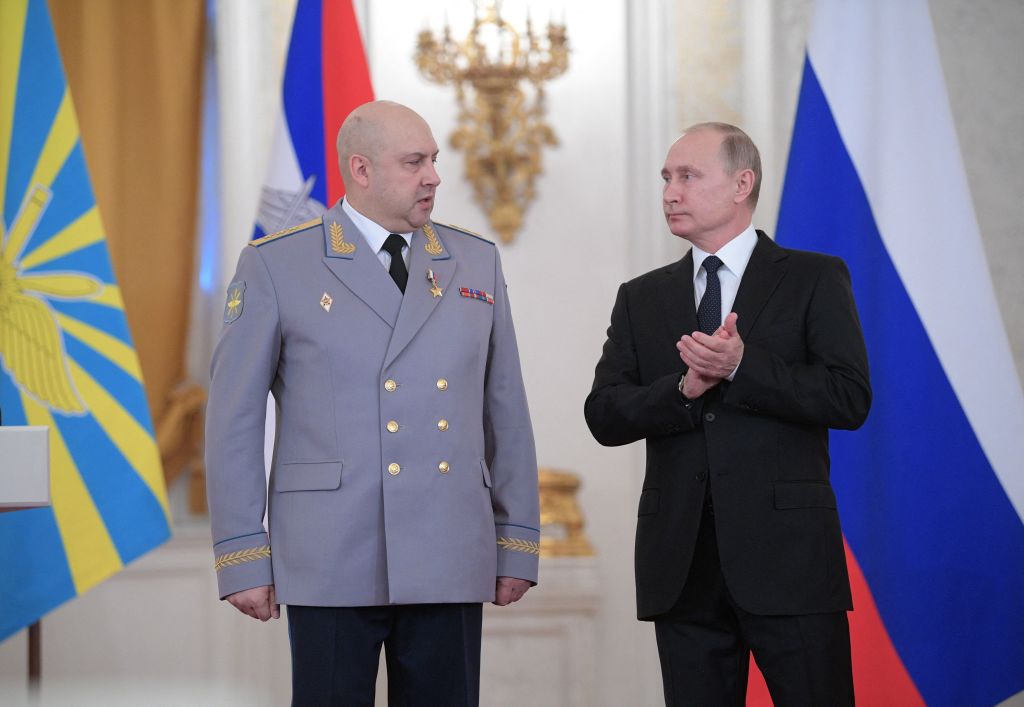 Top Russian generals killed, fired, disappeared after aborted Wagner mutiny
Top Russian generals killed, fired, disappeared after aborted Wagner mutinySpeed Read
-
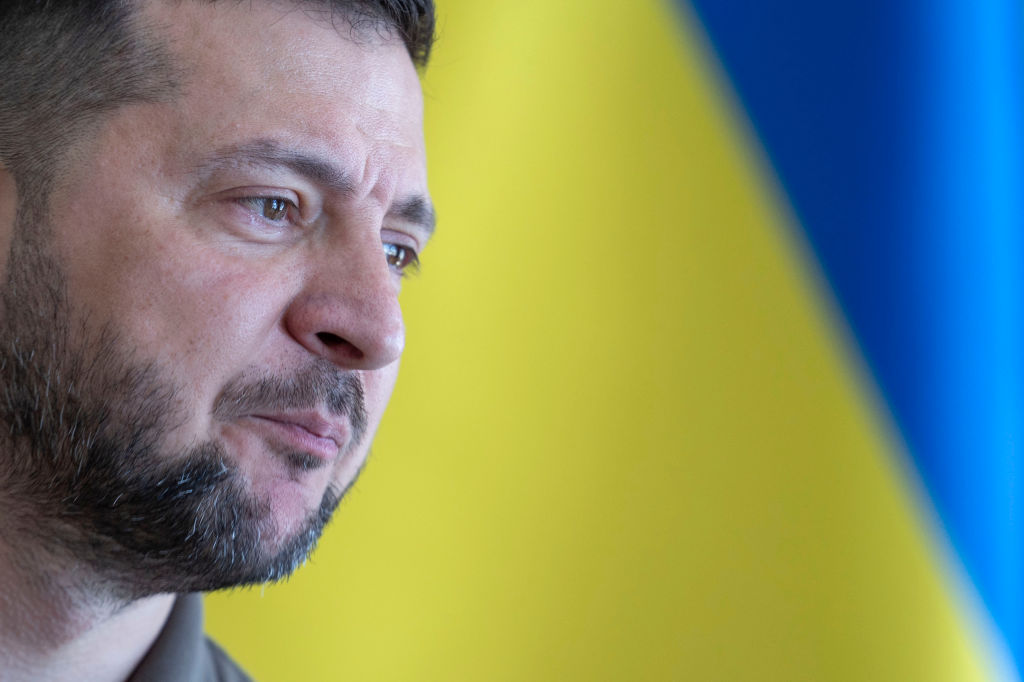 Should Ukraine be admitted to NATO?
Should Ukraine be admitted to NATO?Talking Point With this week's Vilnius summit, Ukraine's possible accession to the military alliance is more than a little top of mind
-
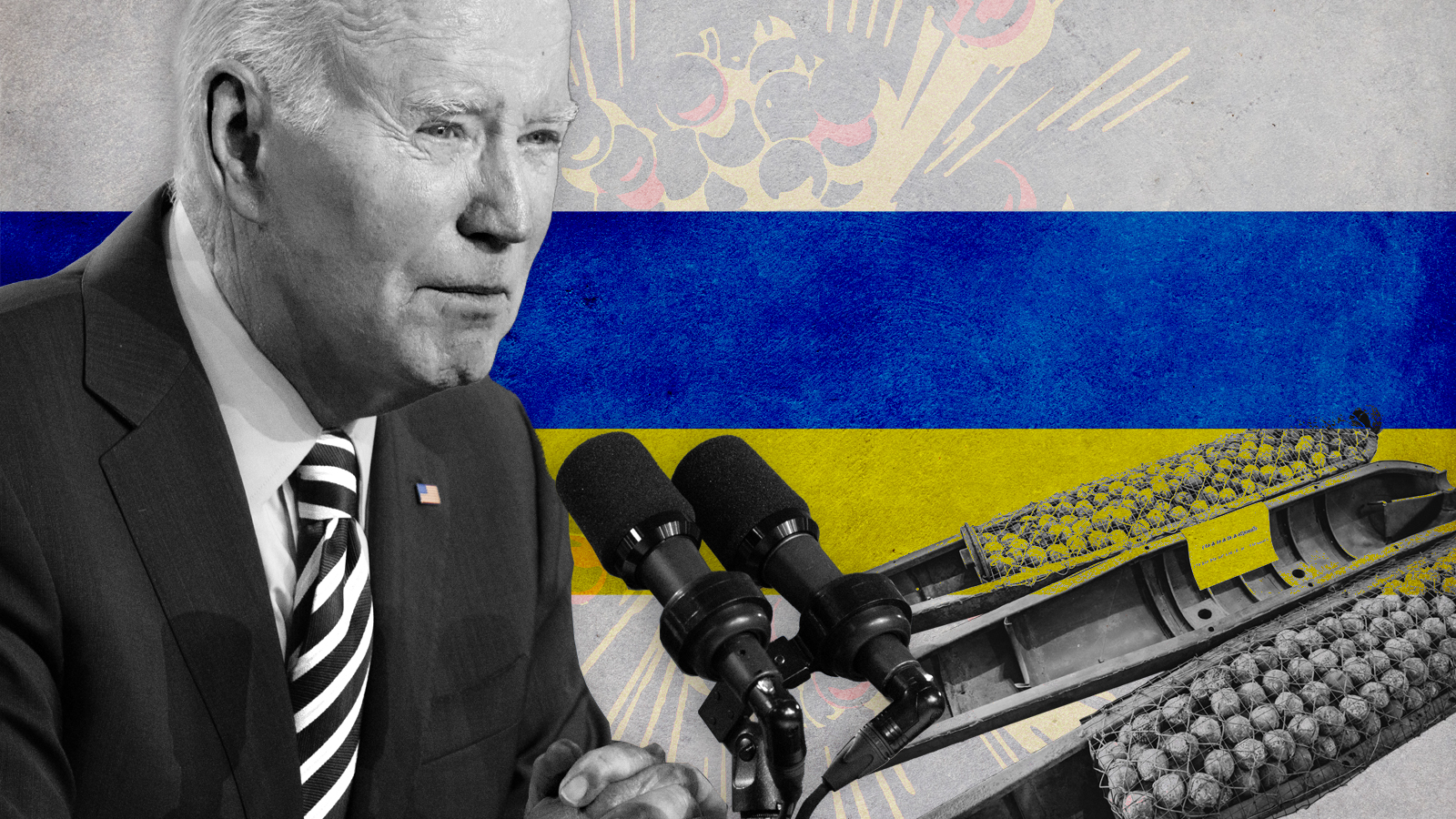 Why are cluster munitions controversial?
Why are cluster munitions controversial?Today's Big Question The U.S. will send a new weapon to Ukraine. Human rights advocates are alarmed.
-
 Top Russian general knew about Wagner's mutiny beforehand, U.S. intelligence assesses
Top Russian general knew about Wagner's mutiny beforehand, U.S. intelligence assessesSpeed Read
